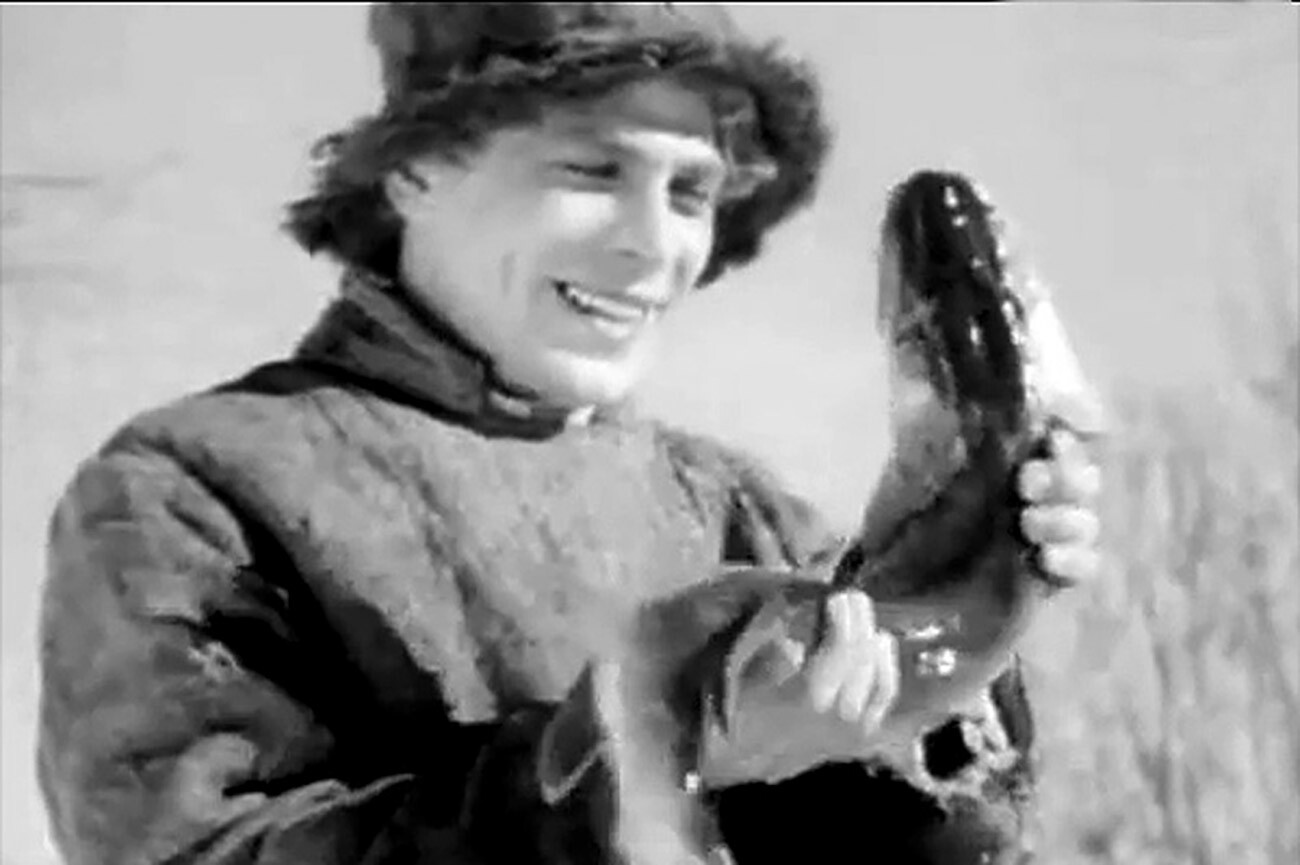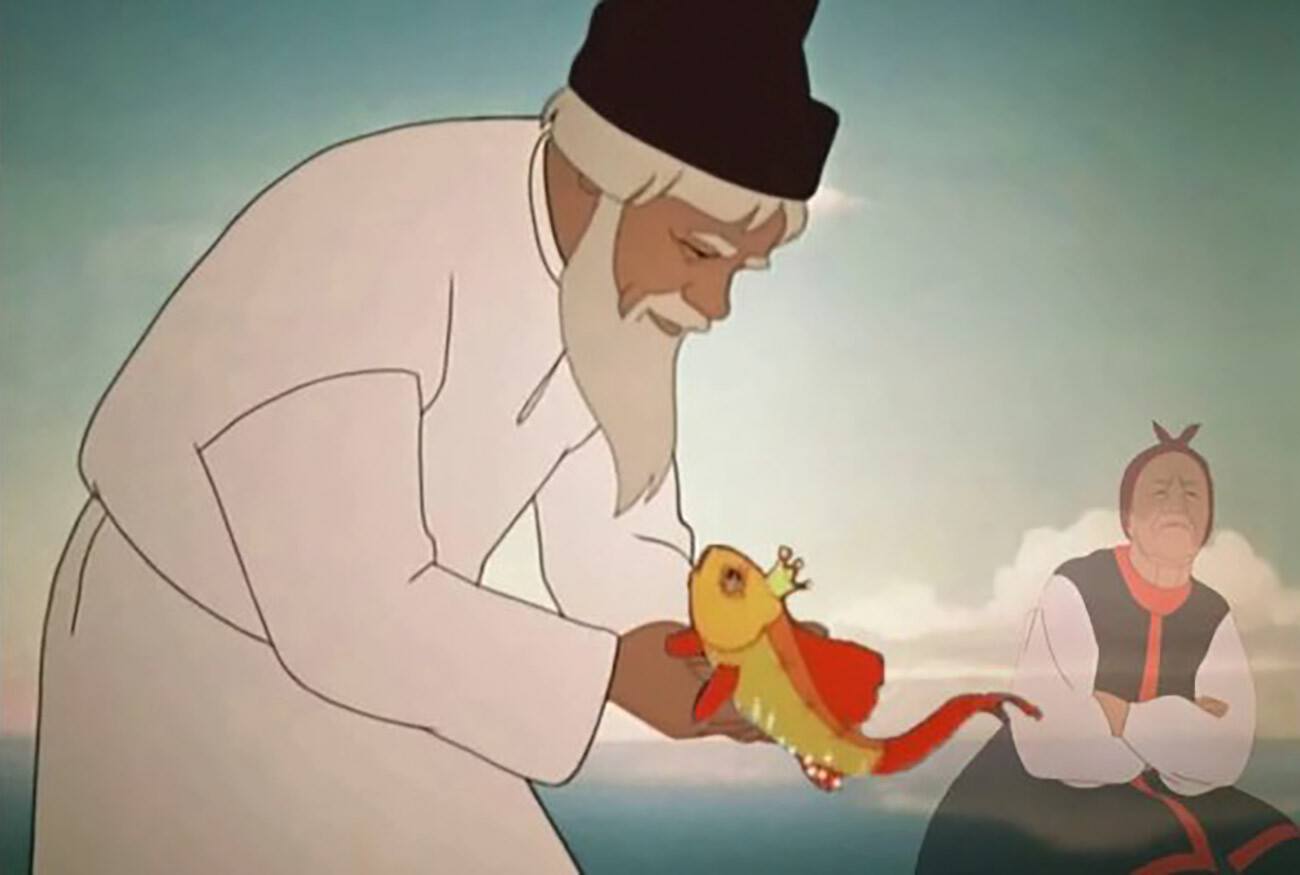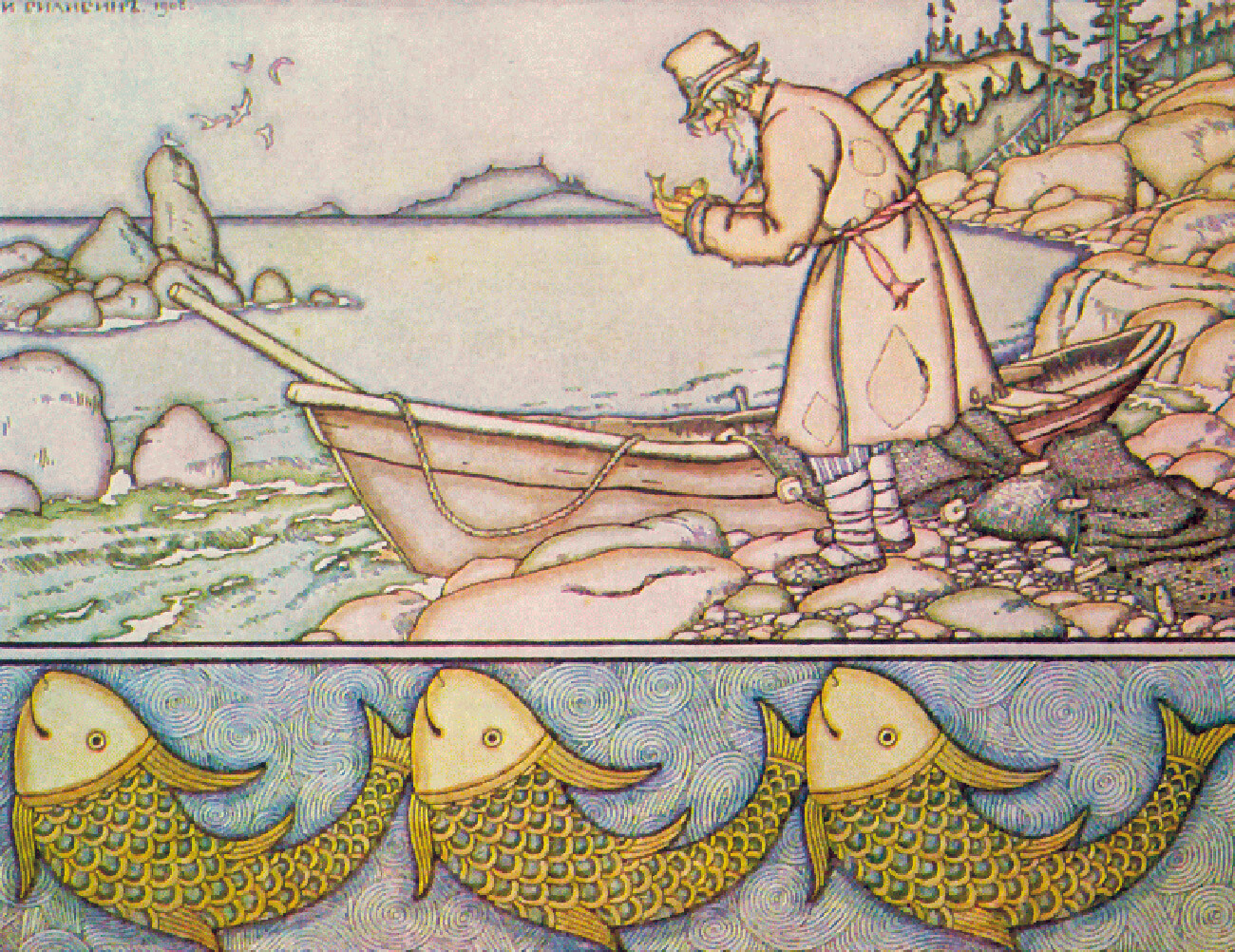
Fishing is one of the most popular activities in Russia. By folk tradition (and even nowadays), men “escape” from their families on fishing trips. Watching the water and waiting patiently for a fish to bite is true Russian-style meditation (winter ice fishing is also very popular, so a true fisherman is not afraid of cold or bad weather).
A lot of proverbs are also linked to fishing: “One fisherman sees another from afar”; “Not everyone who once caught a fish is a fisherman”; “One can see a babbler by his word and a fisherman - by his haul”.
Catching a rare fish, especially if it’s big, is considered great luck, so many fairy tales focus on a fisherman catching a magic fish that grants wishes. The fisherman himself could be unhappy, poor, unlucky or simply lazy.

A screenshot from the movie ‘Wish upon a Pike’, 1938
Alexander Rou/Soyuzdetfilm, 1938Russian fairy tales have two most notorious magic fish. One of them is a pike. In the fairy tale ‘At the Pike’s Behest’, lazy Emelya the Simpleton is lucky to catch a magic pike in an ice hole with his bare hands. He decides to let it live and, in gratitude, the pike gives him a magic gift. Using the incantation “By the Pike’s command and at my desire”, Emelya grants all his wishes. Usually, however, he uses his magic powers for everyday activities – to chop some wood, to carry water home and he also rides around on his own oven. In the end, the tsar learns about his magic abilities and invites him to the palace – and even marries his daughter to the fool.
This fairy tale narrative is one of the most popular in Russian folklore; it tells the story of the great luck and success of a man who didn’t put any effort into anything and initially was actually quite miserable.

A screenshot from the Soviet cartoon ‘The Tale of the Fisherman and the Fish’
Mikhail Tsekhanovsky/Soyuzmultfilm, 1950Another famous talking fish is the Goldfish from ‘The Tale of the Fisherman and the Fish’ by Alexander Pushkin, who took the popular folklore plot as the basis for his story. In it, a poor old man catches a magic fish by chance that begs him for its life in exchange for granting wishes. The old man doesn’t need anything from the fish and lets it back into the sea, but his quarrelsome wife scolds him for letting such a chance go - and demands him to ask the fish for a new hut. Then her appetites begin to grow and she asks to become a noble and then - a tsaritsa (queen)…

Ivan Bilibin’s illustration for the fairytale ‘The Tale of the Fisherman and the Fish’
Ivan BilibinBut, in the end, the fish becomes angry and strips the old woman of everything - leaving her where she started, “at a broken trough”. This quote became a proverb in itself - and a lesson for those who want too much and abuse magic powers.
Dear readers,
Our website and social media accounts are under threat of being restricted or banned, due to the current circumstances. So, to keep up with our latest content, simply do the following:
If using any of Russia Beyond's content, partly or in full, always provide an active hyperlink to the original material.
Subscribe
to our newsletter!
Get the week's best stories straight to your inbox